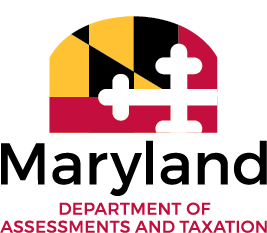
The Maryland Department of Assessments and Taxation (also known as the State Department of Assessments and Taxation, or SDAT) is a customer-focused agency that works to ensure property is accurately assessed, business records are appropriately maintained, and necessary tax-related information is conveyed to state agencies and local jurisdictions. The Department's responsibilities can generally be split into three main areas: Business Services, Real Property Valuation and Property Tax Credits.
The Business Services Division is comprised of the Business Charter Unit and Business Property Valuation Unit. The Business Charter Unit helps create businesses and ensures that the documents they file meet the requirements of Maryland law. The Business Property Valuation Unit values items that businesses own, lease, or use in order to operate and are subject to taxation by local jurisdictions.
The Real Property Valuation (Assessments) Division values more than two million residential and commercial property accounts throughout the state. Those values are then certified to local governments, which use the assessments to collect property taxes. The Department is committed to ensuring uniform and accurate assessments statewide, as well as providing a fair and prompt appeal process.
The Taxation Division includes the Property Tax Credit Unit and the State Tax Sale Ombudsman's Office. The Property Tax Credit Unit helps administer the Maryland Property Tax Credit Programs, including the Homeowners' Tax Credit, the Renters' Tax Credit, and the Homestead Tax Credit. The Office of the Maryland State Tax Sale Ombudsman helps homeowners understand the tax sale process and navigate the tax sale system, connecting them to housing and financial counseling, legal services, and other benefits programs.